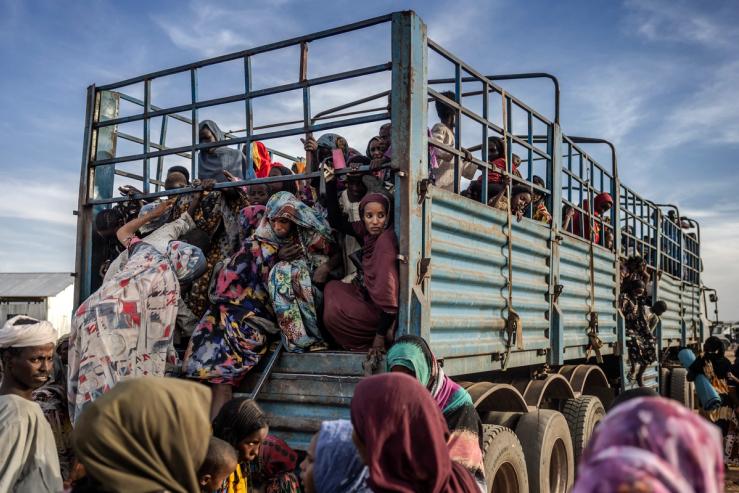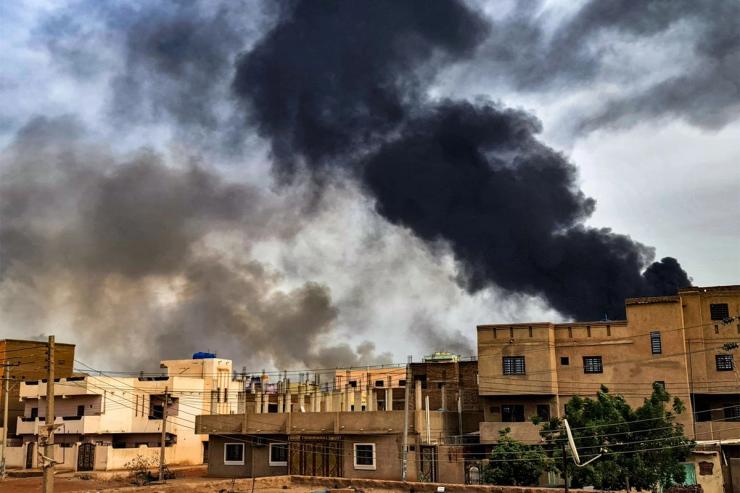The News
Exactly one year into the war in Sudan, prospects for peace in the near future are getting dimmer. Fighting between the Sudanese armed forces (SAF) and the paramilitary Rapid Support Forces (RSF) is escalating and looks set to worsen in its second year because neither side has gained a significant advantage so far, analysts told Semafor Africa.
Clashes between forces led by rival generals erupted on April 15 last year in a power struggle that followed Sudan’s failure to transition to a democratic civilian-led government after the 2019 uprising that ousted the long-serving dictatorial leader Omar al-Bashir.
“Fighting is currently on an uptick and most concerning is that it is spreading into new areas that have not previously seen a lot of violence,” noted Cameron Hudson, an analyst with the Washington D.C.-based Center for Strategic and International Studies.
Efforts by the international community to broker peace have fallen flat. Peace talks led by the United States and Saudi Arabia, which began in Jeddah last year and were initially slated to resume on April 18, have been postponed with no new confirmed date for the talks.
The sides also continue to seek legitimacy beyond the battlefield, albeit with different approaches. The RSF has aggressively lobbied international support with its leader Mohamad Hamdan Dagalo, better known as “Hemedti”, making high profile trips to South Africa, Ethiopia, Rwanda, Kenya and Uganda among others.
Ladd Serwat, an analyst at conflict monitoring group ACLED, told Semafor Africa that
no side had gained a clear upper hand in garnering international support. He said Western countries have “followed international norms to favor the ruling regime,” whereas others, such as Libya and the Central African Republic (CAR), have served as “strategic supply routes for the Wagner Group/Africa Corps mercenaries to supply the RSF.”
In this article:
Know More
Both sides in the war have been accused by the U.N. of committing atrocities, including sexual violence and attacking civilian sites.
But Hudson said atrocities committed by the RSF have cost it significant popular support. “Ultimately, it’s hard for the RSF to sustain any support externally if they have no popular legitimacy within Sudan,” he said.
More than 8 million people have been displaced from their homes since the start of the war, and at least 14,000 have died directly from the conflict. The country faces a severe food insecurity crisis. And 19 million children, or one out of three children in Sudan, also find themselves out of school with the U.N warning of a potential “lost generation.”
Humanitarian workers who spoke to Semafor Africa revealed difficulty in getting aid to those in need.
“Communities are being cut off by the fighting and are unable to access essential services, including food and clean water — meanwhile, humanitarian personnel and resources are being targeted in attacks,” Musa Chibwana, the regional humanitarian policy advocacy manager for Save the Children, told Semafor Africa.

Martin’s view
The world’s response to the situation in Sudan has been inadequate. Just 5% of the U.N.’s $4.1 billion humanitarian appeal for Sudan has been raised so far and peace talks appear to have stalled despite the deteriorating situation.
The lack of access to humanitarian assistance for many victims of the Sudan war is a major concern that needs to be immediately addressed. Even as a long-term solution is sought to end the war, resolving this should be a top priority for the international community.
It’s also crucial to realize that the consequences of the war are being felt far beyond Sudan’s borders. Countries including Chad and South Sudan are grappling with an influx of refugees fleeing the war.
French NGO Action Contre La Faim (ACF), or Action Against Hunger, warned on Wednesday last week that 3.4 million people in Chad were in urgent need of humanitarian aid following the arrival of large numbers of Sudanese refugees.
“Provinces in the east of Chad are among the country’s most vulnerable zones with poor access to basic services, and the arrival of refugees drastically exacerbates the need,” it cautioned.
The View From Washington
The U.S. on April 14 pledged $100 million in additional donor funding for humanitarian assistance in Sudan. Tom Perriello, the U.S. special envoy to Sudan, said Washington would rally humanitarian support for Sudan at a donor conference in Paris on April 15. He described the international response so far as “pitiful.”


